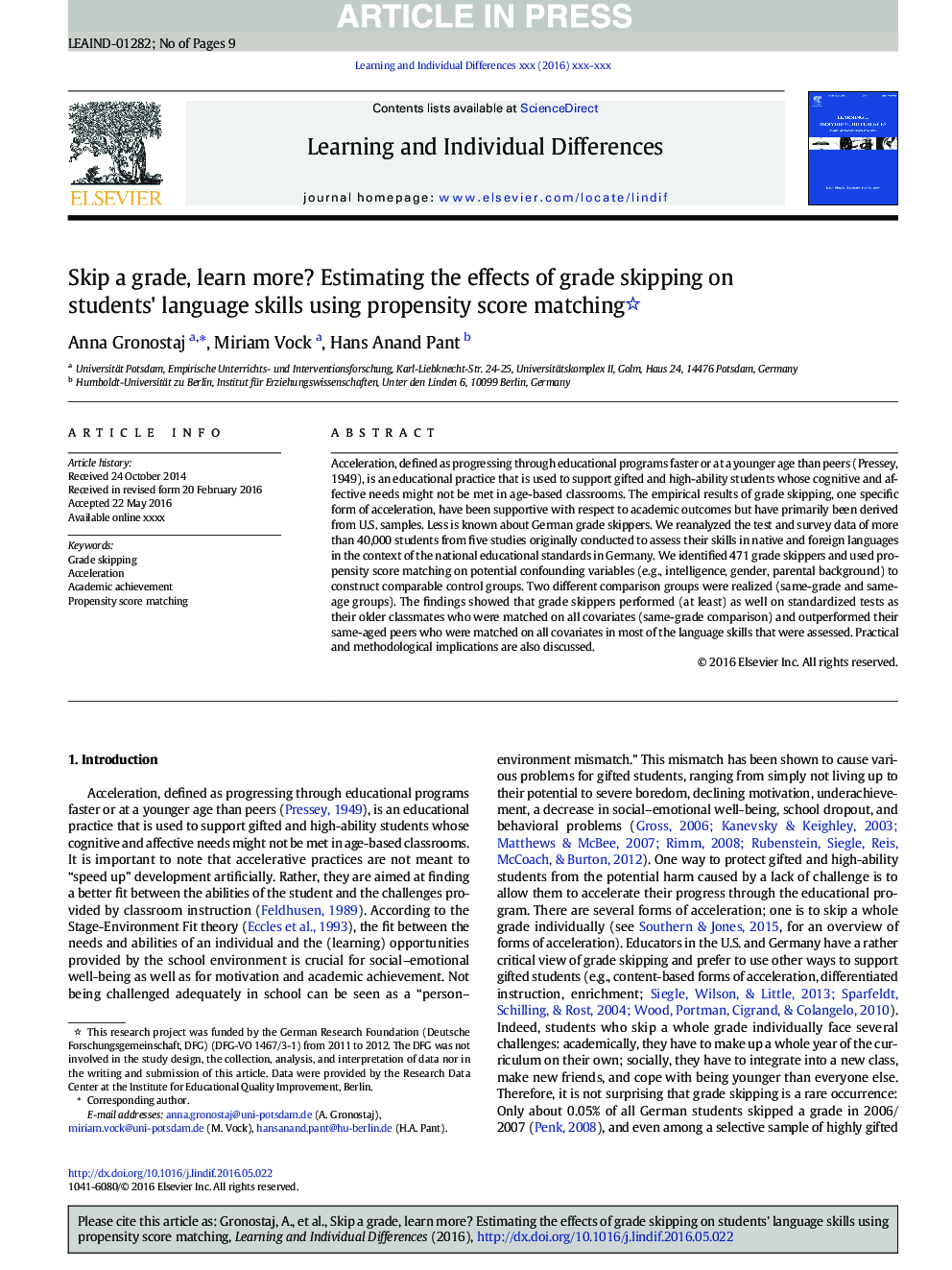| Article ID | Journal | Published Year | Pages | File Type |
|---|---|---|---|---|
| 6844777 | Learning and Individual Differences | 2016 | 9 Pages |
Abstract
Acceleration, defined as progressing through educational programs faster or at a younger age than peers (Pressey, 1949), is an educational practice that is used to support gifted and high-ability students whose cognitive and affective needs might not be met in age-based classrooms. The empirical results of grade skipping, one specific form of acceleration, have been supportive with respect to academic outcomes but have primarily been derived from U.S. samples. Less is known about German grade skippers. We reanalyzed the test and survey data of more than 40,000 students from five studies originally conducted to assess their skills in native and foreign languages in the context of the national educational standards in Germany. We identified 471 grade skippers and used propensity score matching on potential confounding variables (e.g., intelligence, gender, parental background) to construct comparable control groups. Two different comparison groups were realized (same-grade and same-age groups). The findings showed that grade skippers performed (at least) as well on standardized tests as their older classmates who were matched on all covariates (same-grade comparison) and outperformed their same-aged peers who were matched on all covariates in most of the language skills that were assessed. Practical and methodological implications are also discussed.
Related Topics
Social Sciences and Humanities
Psychology
Developmental and Educational Psychology
Authors
Anna Gronostaj, Miriam Vock, Hans Anand Pant,
